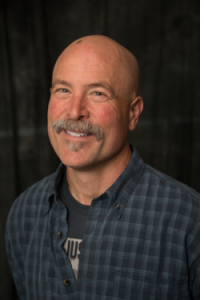Teaching Interests
Dr. Grismer’s current teaching interests surround applied hydrology and related soil-water processes considering general environmental and agricultural systems.
Teaching Responsibilities
Principles of Hydrology (ESM 100 & 100L, 6 units) – Large enrollment course including multiple laboratory and discussion sections for environmental science students covering all aspects of general hydrology as well as basic hydrogeochemistry and hydraulics.
Seepage and Drainage, Irrigation and Drainage (HYD 140, HYD 115/EBS 145, 4 units) – An engineering principles and design course considering subsurface drainage issues associated with excess rootzone drainage, seepage from canals or impoundments and artesian groundwater conditions.
Landscape Irrigation (ABT 165, 2 units) – Introductory design course for sprinkler irrigation in the urban environment; includes study of ET, soil-water balance analyses, and development of irrigation schedules.
Environmental Management (ESM 195, 2 units) – A senior capstone course introducing students to the permitting and environmentasl review processes, adaptive management and stakeholder cooperation.
Multi-phase Transport in Soils, Infiltration and Drainage (HYD 244/EBS 240, 3 units) – A graduate course considering two and three-phase flow through porous media and its application to infiltration and vadose zone processes. Students design and complete research projects of interest as part of the course.
Wood Properties & Fabrication (ABT 15, 2 units) – A basic materials course with multiple laboratory sections considering wood as a biological material, its physical properties (e.g. strength, density, thermal conductivity), mechanics of materials and construction of wood hand planes.
OSHA HAZWOPER Training (HYD 410, HYD 440, 1&3 units) – OSHA 10-hr and 40-hr certification courses required before entering hazardous material sites.
Hydrologic Science Seminar (HYD 200, 1 unit) – Graduate seminar course considering basic literature review, proposal writing and lecture principles combined with attendance and review of seminars related to hydrology.





